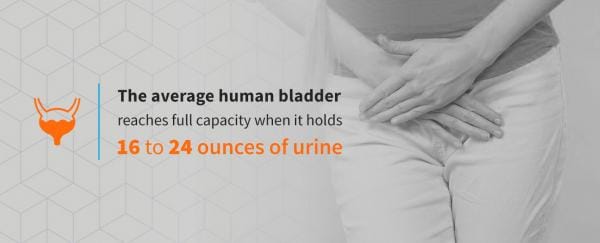
Subheading: Understanding Bladder Health
Maintaining a healthy bladder is crucial for overall well-being. By implementing effective strategies and lifestyle changes, you can support your bladder health and prevent various bladder-related issues.
Subheading: Stay Hydrated, Wisely
Hydration is key, but it’s essential to manage fluid intake smartly. Aim for adequate hydration by drinking water throughout the day. However, be mindful of excessive caffeine and alcohol consumption, as these can irritate the bladder and increase the frequency of urination.
Subheading: Practice Good Bathroom Habits
Establish healthy bathroom habits by avoiding holding urine for too long. Frequent bathroom visits help prevent bladder overstretching and potential complications. Empty your bladder fully each time to reduce the risk of urinary tract infections (UTIs).
Subheading: Maintain a Healthy Diet
Your diet significantly impacts bladder health. Incorporate fiber-rich foods to prevent constipation, which can put pressure on the bladder. Avoiding spicy foods, acidic fruits, and artificial sweeteners can also help manage bladder irritation.
Subheading: Regular Physical Activity
Exercise promotes overall health, including bladder health. Physical activity can help maintain a healthy weight, reducing the pressure on the bladder and decreasing the risk of urinary incontinence.
Subheading: Kegel Exercises for Pelvic Floor Strength
Kegel exercises strengthen the pelvic floor muscles, which support the bladder and urethra. Regular practice can aid in preventing urinary leakage and improving bladder control, especially in women.
Subheading: Don’t Smoke
Smoking can exacerbate bladder issues and increase the risk of bladder cancer. Quitting smoking reduces bladder irritation and significantly improves overall bladder health.
Subheading: Manage Chronic Health Conditions
Conditions like diabetes and obesity can impact bladder health. Managing these conditions effectively, through proper medication and lifestyle changes, can reduce the risk of bladder-related complications.
Subheading: Limit Bladder Irritants
Certain substances can irritate the bladder. Minimize consumption of carbonated beverages, artificial sweeteners, and spicy or acidic foods to prevent bladder irritation and potential inflammation.
Subheading: Maintain a Healthy Weight
Being overweight can put additional pressure on the bladder and pelvic floor muscles. Adopting a healthy diet and exercise routine can help maintain a healthy weight and reduce the risk of bladder issues.
Subheading: Regular Check-ups and Bladder Health Monitoring
Regular visits to a healthcare professional for check-ups and preventive screenings are crucial. These appointments can detect potential bladder issues early on and allow for prompt treatment.
Subheading: Conclusion and Further Resources
Prioritizing bladder health through these lifestyle adjustments and practices is essential for overall wellness. To explore more in-depth tips and resources for maintaining a healthy bladder, delve into the comprehensive guide on Tips for maintaining a healthy bladder.
By incorporating these tips into your daily routine, you can support and safeguard your bladder health, promoting a healthier and more comfortable lifestyle. Remember, proactive steps play a significant role in preventing bladder-related problems and ensuring long-term bladder wellness.



